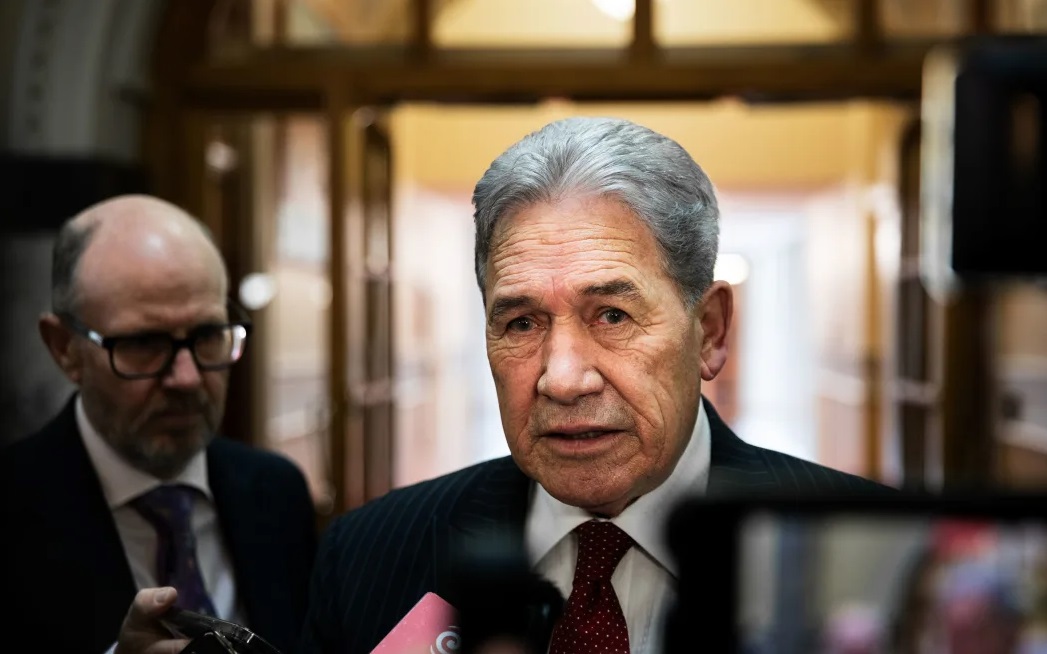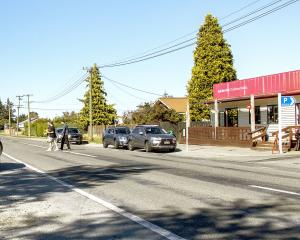
New Zealand First is pushing for the term "woman" to be defined in law as "an adult human biological female" as the party vows to fight "cancerous social engineering" and "woke ideology".
But RNZ can reveal the party has also quietly withdrawn its proposed legislation to fine those who use public bathrooms not for their designated sex.
In a statement released today, NZ First leader Winston Peters published a member's bill to "safeguard sex-based protections and the importance of sex-based rights" by clarifying the legal definitions of "man" and "woman".
It follows last week's ruling from Britain's highest court that only biological - and not trans - women meet the definition of a woman under equality laws.
Speaking to RNZ, Peters said the legislation was "not about being anti-anyone or anti-anything" but about focusing on "the facts of biology".
"You can recall when we talked about women being unfairly competed against in sports, keeping men out of women's and girls' changing rooms.
"When we said that, some media said we're going down a rabbit hole, or on another planet, as some politicians said. But look at recent events: the mass majority of New Zealanders want a fair go for women."
When NZ First initially announced the policy in the lead-up to the 2023 election, National leader Christopher Luxon said it was not an issue important to New Zealanders: "You are on another planet if you want to have a conversation about bathrooms and make that an election issue."
Asked what practical impact the legislation would have, Peters said the clear definition would keep the country from going down the "deluded left passage where all sorts of descriptions are given".
The bill would stipulate that in all legislation "woman" should be interpreted as "an adult human biological female" and "man" as "an adult human biological male".
The legislation is in the name of MP Jenny Marcroft and would be debated and voted on only if drawn from Parliament's ballot.
It replaces Marcroft's previous proposal to require councils to hold a binding referendum before deciding whether to add fluoride to local drinking water. MPs can have only one bill on the ballot at any time.
The party has also removed from the ballot its "Fair Access to Bathrooms Bill" which would have introduced a fine for those who used a public bathroom not for their designated sex.
It would have also required all non-domestic, publicly accessible new builds to provide separate male, female and unisex bathrooms.
Asked why the bill had been withdrawn, Peters told RNZ he viewed the new "Definitions of Woman and Man Bill" as a more encompassing approach.
"We've thought we need to deal with this in a much more comprehensive way, deal with it now, and set the legislation right."
Labour leader Chris Hipkins told RNZ Peters was clearly pursuing "any populist cause" to try keep himself above the 5% threshold required to make it into Parliament.
"They're interested in one headline after the next... they don't really have a coherent programme and they're certainly not focused on the things that are required to lead New Zealand forward."
RNZ last week revealed NZ First MP and associate Health Minister Casey Costello had directed Health New Zealand to use the term "women" instead of "pregnant people" in its communications.
*The story initially said a member's bill scrapping diversity targets had also been removed from the ballot. It had actually been transferred from one NZ First MP to another.













